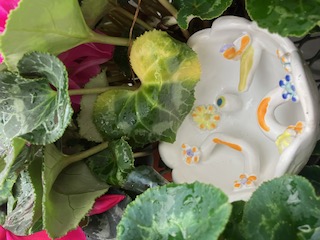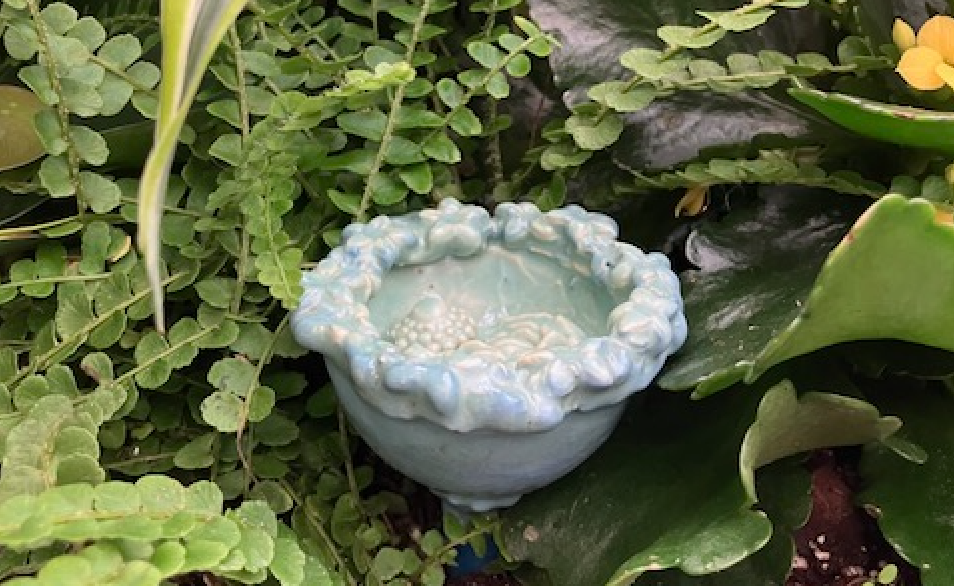Please note: This event has been cancelled. We hope to reschedule for later in the spring/summer.
Please join us and Vermont sculptor Jennifer McCandless in creating a sculptural piece of clay garden art that will double as a watering spot for thirsty native pollinators such as mason and leaf cutter bees, beetles, moths and butterflies. The workshop will be offered in 30 minute intervals during the Montpelier Art Walk, April 5th between 4 PM and 7 PM. Please RSVP.
Each participant will receive clay and instruction with lots of room for self expression and innovation. The pieces will be decorated at the workshop and then kiln fired and delivered back to VNRC for pickup by April 19.
These sculptures will hold water but not enough to allow mosquitos to breed and will have drinking perches for thirsty pollinators to safely sip. In her work, Jennifer is reimagining outdoor sculpture to support nature rather than dominate it while at the same time involving community members in the making process.

Jennifer notes the many benefits of this approach: “Creating in clay with one’s hands can be personally grounding, bring one into the present, a bonding experience with other participants, a sharing of imagination and gift of care towards the pollinators. The workshop aims to create relationality and appreciation of the other worlds we inhabit, a hopeful act of restoration and care.”
Lists of flowering native plants beneficial to non-stinging native bees will be available as well as other tips to help pollinators thrive in your garden. Come ready to get your hands dirty and to play.. even if you’re not a kid!
Jennifer has taught ceramics and sculpture full time for over thirty years (to all ages). All are welcome!
State of the Bees
The November 2022 Vermont State of Bees Report provides one of the most comprehensive assessments to date of both the conservation status and current threats to Vermont’s wild bee populations. The report—produced through a collaboration with the Vermont Center for Ecostudies, the Vermont Department of Fish and Wildlife, and a multitude of citizen scientists—highlights that of Vermont’s 350 bee species, 55 are imperiled due to restrictions in habitat and other threats causing population decline. The study authors provide compelling reasons for why we should be compelled to address these issues, stating, “Wild bees play a pivotal role in pollinating both wild and crop plants, a critical ecosystem service many people take for granted.” The report goes on to note that while “the important role that pollinators, particularly bees, play in Vermont’s ecology and economy has become better recognized by the public in recent years,” there is much more work to be done to ensure that these species remain healthy and viable.




